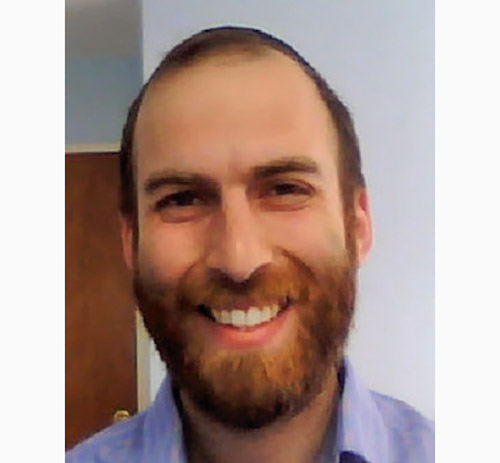
Following a provocative and very successful awareness event a few weeks ago, there has been a meaningful uptick in discussion and interest in substance-use disorders in our community. Understandably, certain very public and noticeable practices have received a lot of negative attention in these discussions, including “Kiddush clubs” (the practice of taking a break during Shabbat-morning services to make a l’chaim on hard liquor) and the ever-present nature of alcohol in our shuls and smachot. Amudim, a Brooklyn-based crisis management organization, recently produced an excellent video highlighting the negative impact irresponsible drinking in the presence of children, especially Kiddush clubs, can have on family.
As an addiction psychiatrist and a member of the Orthodox Jewish community, I have been asked to comment on these phenomena and the general issue of alcohol’s constant presence at Jewish community celebrations. My goal here is to contribute to the ongoing community discussion about developing healthy and practical policies that will keep our children and communities safe.
Firstly, I want to commend the Amudim organization for working to raise awareness of addiction in the Jewish community and encourage everyone to watch their video (it is just over five minutes long and available online). The video highlights the dangers of irresponsible drinking in a provocative way, and will hopefully inspire people to be mindful of drinking behaviors around their children.
However, being mindful of drinking behaviors and good role modeling is only the first step. As our understandings of addiction have improved, a consensus among mental health professionals has emerged—that a comprehensive approach to “emotion coaching” by parents to help kids increase their emotional intelligence, along with good communication and healthy disciplinary methods, are essential factors in decreasing the risk of teens and young adults developing problems with drugs and alcohol.
Accordingly, while I fully support initiatives regulating alcohol in our shuls and gatherings, I don’t think focusing on this issue will be an effective approach to addressing substance-use issues in our community, and it is essential that we do not let it distract us from more-important community interventions.
I believe a key to substance-use-disorder prevention in our community must begin with investing in the basic components of emotional intelligence. Yeshivas are stressful places, as students are pressured to master a dual-curriculum in a culture where significant financial success is the norm. The combination of high expectations, limited time for self-care and the ever-present stress of cell phones are incredibly challenging, which, in turn, increase the likelihood of a student turning to alcohol or drugs to help them cope.
Developing the key components of emotional intelligence is a tried-and-true approach to substance-use-disorder prevention that will teach students to manage the challenges and stress of yeshiva and the angst of adolescence in today’s world. Emotional intelligence training can also offer our students and our communities a range of other mental health and emotional benefits.
Fortunately, our schools have worked tirelessly over the years to address some of these issues through counseling, educational initiatives and a referral infrastructure, as well as providing important prevention and educational services. At a recent meeting with a prevention expert and local community lay-leaders Lianne and Etiel Forman, many of the school administrators and mental health professionals from our local yeshivot doubled down on their commitment to students’ mental health and emotional development.
The meeting was meant to discuss additional steps that can be taken going forward, and a broad consensus emerged that our schools are committed to improving prevention and addressing substance-use problems in a uniform and productive way, including a focus on expanding school-based emotional intelligence training. This approach includes coaching students through an organized curriculum to manage their thoughts, feelings and relationships. Although our schools are busy with many important matters, they are committed to adding training in the basic components of emotional intelligence: self-awareness, self-management, social awareness and relationship management.
In light of the focus on cutting costs at our yeshivot these days, it is to the great credit of our community’s educators that they have recognized the importance of emotional intelligence training and are willing to take steps to address it. While there might be an impulse to consider such initiatives an unfortunate use of resources to address a problem we wish didn’t exist, we must recognize that these skills are vital to success in today’s world, and substance-use prevention is just one of the many benefits that can be gained through investing in students’ emotional intelligence.
It would be a tragic mistake to focus so much time and energy on things like college preparation, athletic excellence or even religious growth while ignoring the emotional skills that are necessary for long-term success. The mental health community is filled with stories of promising students being accepted to the best schools, only to be beset by a host of psychological and substance-use issues that prevent the bright future and success that seemed so certain. (Not to mention the tragic suicides of so many college students who appear so successful on the surface, but are overwhelmed by emotional anguish and turmoil.)
Time and money spent on this training should be considered a valuable investment to ensure our children stay competitive—and well adjusted. Hopefully such programs can become the standard in yeshiva education and help ensure a bright future for our children.
By Matisyahu Shulman, MD
Matisyahu Shulman, MD, is an addiction psychiatry research fellow at Columbia University Medical Center and has a private practice in Teaneck, NJ. He also has semicha (rabbinic ordination) from Yeshiva University. He can be reached at [email protected].













